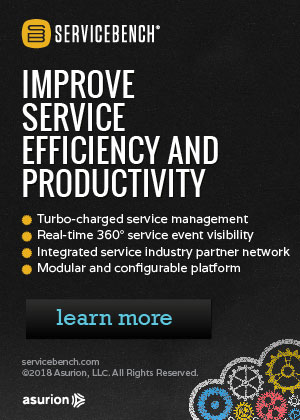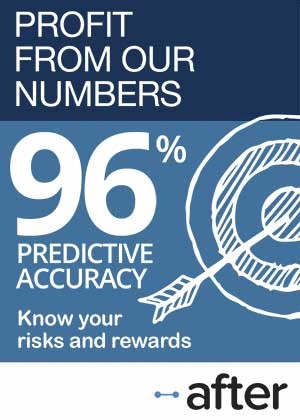Top Auto Insurance Companies:
One would expect a high correlation between those offering auto insurance policies and those offering vehicle service contracts or mechanical breakdown insurance to consumers. But Zurich is the only one with a major presence in both.
As we begin to wrap up our tour of the vehicle service contract industry and get closer to providing some market share numbers, we're taking a few snapshots of the top auto insurance companies, some of which also stand behind the sellers and administrators of vehicle service contracts.
Last week, we looked at how GMAC lost a fortune in home mortgages and ended up majority-owned by the U.S. government. This week, we're looking at the correlation (or lack thereof) between the major personal auto insurance carriers and the top vehicle service contract underwriters.
Auto Insurance Market Share
A little over half the personal auto insurance market in the U.S. is controlled by six companies: State Farm, Allstate, GEICO, Progressive, Farmers, and Nationwide. According to statistics published by A.M. Best, these six companies accounted for 53.9% of the private passenger auto market's direct written premium total in 2008.
| Insurer | Share |
| State Farm | 17.8% |
| Allstate | 11.0% |
| GEICO | 7.7% |
| Progressive | 7.2% |
| Farmers | 5.5% |
| Nationwide | 4.7% |
| Others | 46.1% |
Source: A.M. Best
Surprisingly, only Farmers/Zurich has a major presence in the vehicle service contract industry. Allstate and Nationwide have a significant presence in the vehicle service contract industry, but they hardly acknowledge its existence. GEICO sells mechanical breakdown insurance policies to some of its auto insurance customers, almost as a courtesy. But State Farm and Progressive don't even go that far.
Different Sales Channels
Part of the reason has to do with the sales model. Progressive and GEICO, for instance, prefer to sell their auto policies directly to consumers, over the phone or on the Internet. Vehicle service contracts and/or mechanical breakdown insurance policies can be sold that way, but they sell better with some helpful coaching from an F&I manager at a franchised dealership.
The other companies traditionally use insurance agents to sell auto policies, but their VSC selling skills are no match for a good F&I manager. Fortunately for them, auto liability insurance is required in most states, so usually the customers are coming to them, needing to buy. That's not so with VSCs, where even the best F&I managers fail to close the deal in roughly two out of every three opportunities.
Still, don't F&I managers also sell auto insurance? Isn't that what the "I" stands for? It does, but even in those cases there's a difference. With personal auto insurance, most of the effort goes into convincing the buyer that they're getting the lowest price. With VSCs, most of the effort goes into convincing the prospect they're getting the best protection. With auto insurance, the underwriter's name is the brand. With VSCs, the underwriter's name is in the fine print. It's the dealer's reassurances that make the sale happen.
As a result, the most successful auto-insurance-companies-turned-VSC-underwriters are the ones you wouldn't even know are there, and whose corporate brand names are less-than-familiar. For instance, the administrators of the VSCs sold by many Ford, Mazda and Volvo dealers work with a sister company of Farmers as their underwriter, but only recently, after a failed attempt to divest the unit, has the company begun to use the family name.
Trusted Brand Names?
There is nothing inherently dirty or demeaning about the sale of vehicle service contracts. Most of the criticisms regarding the need for coverage would be equally applicable to term life insurance policies, yet we've never seen the consumer advocates rail against them. Granted, there's a major difference in claims adjudication (you're either dead or you're not), but the denial of claims is hardly unknown in sectors such as health insurance.
The biggest problem with service contracts is outright fraud. Either the seller absconds with the premiums, or the administrator or underwriter collapses in a heap of unfunded liabilities. Ironically, these are exactly the kinds of activities that the most trusted brand names in insurance go to great lengths to avoid.
Part of the US Fidelis horror was enabled by the vacuum left in the VSC distribution model: Usually, it's either the F&I manager doing the selling in the dealership at the point of sale, or it's some shady character cold-calling your cell phone in the aftermarket. And they won't tell you their address, and they hide behind post office boxes, mail drops, (800) numbers, Caller-ID blocking, and anonymous web site registrations.
We can't help but wonder if the trust that brand names of State Farm, Allstate or GEICO enjoy in the general insurance markets might be able to make the transition into direct sales of vehicle service contracts. What if the phone rang and it was a State Farm agent selling a mechanical breakdown insurance policy? What if a postcard arrived in the mail from Allstate, touting discount extended warranties for good drivers?
Let's look at each of these top six auto insurance companies in turn:
State Farm
As its name suggests, the State Farm Mutual Insurance Co. is a mutual company owned by its policyholders, and its stock does not trade publicly. So there are no financial statements on file with the U.S. Securities and Exchange Commission.
There is, however, a limited amount of financial data available for the company. The State Farm Mutual Automobile Insurance Co. reported $32.06 billion in premiums earned last year, up from $31.58 billion in 2008. After paying claims, expenses and fees, the company had an operating loss, but once its investment gains are added into the mix, it had net income of $570 million.
From our research, we find that the company is only incidentally involved in the product warranty and service contract industries. Its Select Service program is a repair facility accreditation service that requires each facility to issue a limited lifetime warranty on its repair work. And its State Farm-branded Visa credit cards feature extended warranties on purchases.
Allstate
Allstate has a small stake in the service contract industry. However, in the 2009 annual report of Allstate Corp., there is no mention of either extended warranties or service contracts. There is no mention of the CarMor Vehicle Service Agreement sold by Allstate Dealer Services, though there is a note that Allstate Dealer Services sells insurance and non-insurance products primarily to auto dealers.
There is also no mention of American Heritage Insurance Services, E.R.J. Insurance Group Inc., First Colonial Insurance Company, Northbrook Indemnity Company, or Pablo Creek Services Inc., some of the other entities that sell, administer and/or underwrite service contracts for Allstate. From the company's financial statements, one could develop the impression that it's not in the service contract business at all, if one didn't know better.
However, our sources tell us the list of vehicle service contract marketers and/or administrators that use First Colonial as their underwriter include the Automotive Financial Group Inc., AutoGuard Advantage Corp. (where underwriting is split with American Bankers Insurance Co. of Florida), Mechanical Breakdown Protection Inc., and the United States Warranty Corp. (where underwriting is split with the FFG Insurance Co., depending upon the state).
GEICO
GEICO is a wholly-owned subsidiary of Berkshire Hathaway Inc., and therefore does not publish its own financial statements. However, Berkshire Hathaway includes select figures for the auto insurance company in its annual report: GEICO's written premium total for 2009 was $13.76 billion, up from $12.74 billion in 2008. After paying claims and underwriting expenses, the pre-tax gain was $649 million in 2009, down from $916 million in 2008.
Despite its massive presence in the auto insurance business, GEICO does not seem to have much involvement with the service contract or warranty industry. Its about our insurance products page lists everything from term life insurance to condo insurance, but makes no reference to service contracts, extended warranties, or mechanical breakdown insurance.
However, the company does actually offer mechanical breakdown insurance policies to existing customers who are insuring new or leased cars that are less than 15 months old and that have less than 15,000 miles on the odometer. There is a $250 deductible per claim. GEICO's MBI policies, once opened, can be renewed annually for up to seven years or 100,000 miles (whichever comes first).
It's worth noting that GEICO sells most of its policies directly to the consumer, on the phone and over the Internet. Given that most vehicle service contracts are sold by the finance and insurance departments of auto dealerships, and given that the integrity of many of the non-dealership sales channels have been severely compromised in recent years by the "expiring warranty" scams, it seems unlikely that even GEICO would be able to sell a large number of MBI policies directly to consumers.
General Re Corp. is another wholly-owned subsidiary of Berkshire Hathaway that engages in reinsurance activities in the property/casualty market. But its only involvement in the vehicle service contract turned into an accounting scandal that involved top General Re and AIG executives.
MidAmerican Energy Co., another Berkshire Hathaway investment, is an electric and natural gas utility company that owns HomeServices of America Inc., a real estate brokerage firm that sells home warranties. But it also sells title and closing services, property and casualty insurance, employee relocation management services, and other home-related services such as mortgage originations. Its web site lists 21 local and regional realtors that sell these services.
Progressive
Progressive Corp. and its subsidiary the Progressive Casualty Insurance Co. are best known for their passenger car, motorcycle, snowmobile, RV, ATV and boat insurance products. They even insure Segways.
Progressive's total revenue in 2009 was $14.56 billion, up from $12.84 billion in 2008. Net income neared $1.06 billion in 2009, reversing a slight loss reported in 2008. However, annual revenue has yet to surpass the levels it reached in 2006 and 2007.
Progressive does not appear to have any operations in the product warranty or service contract industries. Some of its older annual reports make reference to "lease commitments and service contracts," but that has nothing to do with vehicle service contracts or extended warranties.
Its only warranty-related activities are incidental. For instance, Progressive gives its customers an option to choose to have their damaged glass repaired or replaced by an affiliate of Safelite AutoGlass, a subsidiary of Belron International Ltd.. If the customer agrees to have their repair performed by a Safelite shop, they'll receive a lifetime warranty on the auto glass work.
Farmers Insurance
The Farmers Insurance Group of Companies is the third largest auto and home insurer in the U.S. Farmers is a subsidiary of Zurich Financial Services Ltd. Farmers is Zurich's main market brand for personal insurance in the U.S., with more than 20 million homeowners, auto and life insurance policies to its name. Farmers also provides business insurance, with a focus on the small commercial market.
Zurich Financial Services was founded in 1872, and is headquartered in Zurich, Switzerland. It employs approximately 60,000 people serving customers in more than 170 countries, including more than 9,500 employees in North America.
Because the company is based in Switzerland and its stock is traded on the Swiss Stock Exchange under the stock symbol ZURN, its financial statements are not on file with the U.S. Securities and Exchange Commission. However, as a courtesy, the company publishes its financial reports online, in English, denominated in U.S. dollars. In general insurance markets, gross written premiums and policy fees totaled $34.16 billion in 2009, down from $37.15 billion in 2008. General insurance business operating profit were $3.46 billion, down from $3.54 billion in 2008.
In 1912, Zurich became the first internationally-based insurer to enter the U.S. market. According to research from Highline Data LLC, Zurich in North America is the second-largest writer of commercial general liability insurance and the fourth-largest commercial property-casualty insurance company. Zurich's risk engineering services in the United States are provided by Zurich Services Corp.
Last year, Zurich's commercial business division's total for gross written premium and policy fees was $9.9 billion. That division is home to the Programs & Direct Markets business unit, which is the entity that provides commercial property and liability insurance for businesses that sell or service autos, trucks, motorcycles, industrial equipment and RVs, as well as for automotive aftermarket businesses such as auto recyclers. The Zurich Direct Markets business unit provides vehicle service contracts and other finance and insurance product offerings aimed at auto dealerships.
Foremost Insurance Co., based in Caledonia, Michigan, was acquired in March 2000. It focuses on insuring specialty products such as mobile homes, motor homes, travel trailers and specialty dwellings. The Bristol West Insurance Group, based in Davie, Florida, was acquired in July 2007. Bristol West began providing private passenger auto insurance to Florida residents in 1973, but has since that time expanded nationwide.
Zurich is also a major provider of commercial property and liability insurance for businesses that sell or service autos, trucks, motorcycles, industrial equipment and RVs as well as for automotive aftermarket businesses such as auto recyclers.
Of the six companies we're profiling this week, Zurich is the only top auto insurance company to prominently list vehicle service contracts among its product offerings. Zurich and/or Farmers are affiliated with several service contract administrators and underwriters, including:
- 21st Century Insurance and Financial Services Inc. (which Farmers acquired from AIG last July, and which has underwritten a mechanical breakdown insurance program for Interstate National Dealer Services Inc. since last May);
- American Guarantee and Liability Insurance Co. (the underwriter for extended warranties sold by Musco Sports Lighting LLC of Oskaloosa IA);
- American Zurich Insurance Co. (the underwriter for Philips Consumer Electronics Co.);
- Colonial American Casualty and Surety Co. and Fidelity and Deposit Co. of Maryland (underwriters for the home warranty plans of Universal Administrators Services Inc.); and
- Zurich, formerly known as Universal Underwriters Insurance Co. (an underwriter created by Ford dealers in 1922 that also is used by many dealers of Volvo and Mazda vehicles, as well as by the Automobile Protection Corp., which was owned by Ford from 1999 to 2007). Zurich acquired Universal in 1982, tried to sell it in 2005, but decided to keep it in 2006. In early 2007, the unit began transitioning to the Zurich brand name, and began integrating itself with the Zurich North America Commercial unit.
Service contract operations no longer owned by Zurich include:
Nationwide Mutual Insurance
The Nationwide Mutual Insurance Company, which began selling auto insurance to farmers in Ohio 80 years ago, remains a major player in that sector of the insurance business. However, in the service contract business, rather than being a major player, it has only a minor presence. And, to make it worse, its good name has been appropriated by at least three other companies.
The Nationwide Auto Warranty Corp., based in Waterloo, Ontario, sells vehicle service contracts through auto dealers in the U.S. and Canada. Nationwide Home Warranty, allegedly based in Manhattan but actually run out of an office building on Coney Island Avenue in Brooklyn, sells its home warranty policies directly to consumers via the Internet. Nationwide Auto Shield sells vehicle service contract over the Internet, from a facility in Earth City MO.
The real Nationwide does not offer any vehicle service contracts or home warranties to consumers. However, it does offer equipment breakdown insurance on electrical equipment, manufacturing equipment, generators, elevators, computers, phone systems, security and fire alarms, as well as cooling, refrigeration, and heating systems.
"Warranties are restrictive," the company states on a web page, "and typically cover new equipment for a determined length of time and for specific types of product failures. Warranties also don't pay for business income loss or equipment damage due to operator error, the cause of many equipment breakdowns. Equipment breakdown insurance pays for business income losses due to a breakdown and many other expenses that would not be covered under a typical warranty."
All of these mechanical breakdown insurance programs are offered to businesses only, however. The only involvement Nationwide has on the consumer side of the service contract industry is as the ultimate parent of the underwriter (Scottsdale Insurance Company's National Casualty Co. unit) for Phoenix American Warranty Co. Inc., a service contract and mechanical breakdown insurance administrator based in Miami (and since 2002, the owner of Wynn's Extended Care Inc.).
Happy Independence Day!
Because of the approaching Independence Day weekend in the U.S., Warranty Week will not publish a newsletter next week. See you after the one-week break on July 8th!









